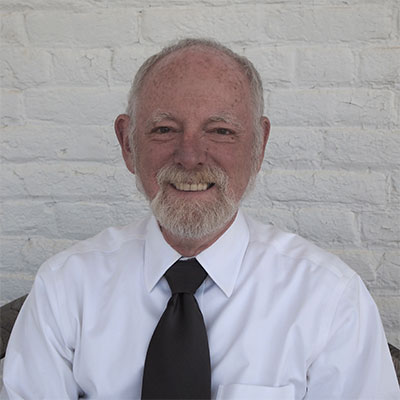 Careful readers of this website will already have discovered my formal curriculum vitae, as well as lists of representative engagements and published opinions in cases in which I have appeared. But perhaps it is appropriate to offer a more personal narrative about how I came to establish Steven M. Schneebaum, P.C., and about what I hope this adventure will accomplish. So I am going to tell you a little about myself.
Careful readers of this website will already have discovered my formal curriculum vitae, as well as lists of representative engagements and published opinions in cases in which I have appeared. But perhaps it is appropriate to offer a more personal narrative about how I came to establish Steven M. Schneebaum, P.C., and about what I hope this adventure will accomplish. So I am going to tell you a little about myself.
I was born in New York City, the Center of the Universe, and was educated in the City’s public schools. It never occurred to me that someday I might be a lawyer: truth be told, I had no idea what lawyers did, or what they looked like. I do not remember ever having met a lawyer before I went off to college.
From Richmond Hill High School I was admitted to Yale College with the Class of 1969. Yale had made the decision in the mid-60s to broaden its student body, and in particular to consider applicants from inner-city schools not traditional “feeders” to the Ivy League. I was a direct beneficiary of that policy, for which I will forever be grateful. What got me into Yale, primarily, was an aptitude for mathematics, which I thought, to the extent that my generation ever spent time thinking about such things, would anchor my career.
I quickly saw, however, that I was never going to be able to achieve a level of creativity or mastery in math to permit any kind of self-expression, innovation, or – I came to realize with some sadness – satisfaction. I drifted through the gateway of the philosophy of mathematics into philosophy as a field of study, and found a world that encouraged and rewarded skills I had never developed: making sensible, logical, and persuasive arguments, and learning to write and to speak in defense of those arguments.
I graduated from Yale with no idea what the future might hold. On my graduation day, I had never been outside of the Eastern Time Zone. The Travel Bug had not yet inflicted its fateful bite: to the contrary, I dreaded the rare occasions when I might be required to fasten an airplane seatbelt.
After Yale I pursued a master’s degree in philosophy at Oberlin College, where I met Karen, my supportive and preternaturally patient wife for over four decades. To be more precise, she met me, since she was certain that Oberlin had no graduate students and therefore aggressively challenged me to demonstrate that I was not some kind of spy or imposter. I wrote my thesis, “Irony and Modern Art,” on the work of Kierkegaard. But the question of what would happen upon entry into the real world could no longer be avoided.
Through a stroke of good fortune that even now seems to me utterly incredible, I found both a rewarding job and an opportunity to travel when I was hired to teach for a year at St. Stephen’s School, an American expatriate school in Rome. That year stretched out to be four years. I learned Italian, and since few faculty spoke the language well, I found myself assigned administrative tasks like negotiating contracts with service providers, and organizing trips and tours for visiting students. I enjoyed those responsibilities enormously.
When it came time to move on, the question was to locate the intersection of the two activities to which I was most attracted: the intellectual exercise of teaching, and the practical one of making complex operations run smoothly. It struck me that the law occupied that space, and would also allow me as a practitioner to speak for people unable, for whatever reason, to speak for themselves. At the same time, I was by then well established in my lifelong fascination with exploring and learning about other cultures. Rome was a launch pad for travel, which permitted me to begin to collect a few languages. So the arrows were pointing toward the law, and in particular international law, as the real estate on which I would build my professional home.
The best of all worlds was to study the law overseas. I was accepted by an initially skeptical Keble College, Oxford, and began my legal studies in September, 1974. No more than a week later it was clear how utterly correct this decision was: spectacular and inspiring teaching gave me a solid understanding of what that elusive concept of “thinking like a lawyer” really means. Two summers at The Hague Academy of International Law ratified my belief that this was my calling.
Since Oxford is considered an “unaccredited law school” in the United States, to be called to the Bar I had to complete yet another degree, which George Washington University Law School calls a Masters of Comparative Law (American Practice). Meanwhile, I found work in the General Counsel’s Office of the U.S. Information Agency, now Of Blessed Memory. Just before I was admitted to practice, I migrated to the law firm then called Patton, Boggs & Blow, and stayed there for 26-1/2 years.
Meanwhile, our daughter Megan, now an accomplished art teacher and artist, and an aspiring farmer, was born, followed by Rachel, today a drug counselor in Virginia and a football fan extraordinaire. They go on being a blessing that I work every day to deserve.
I was given remarkable opportunities at Patton Boggs to learn how not only to think like a lawyer, but to act like one. I traveled extensively, working on international trade law and litigation. And when I say extensively, I mean it: by necessity a fearful flyer no longer, in one year I compiled 170,000 miles in the air.
I also refined my litigation skills, and applied them to a broad array of subject matters and situations. During (and since) those years I appeared in ten of the 13 Circuit Courts of Appeals, as well as in the highest courts of the District of Columbia and the States of Maryland, Virginia, Texas, Iowa, and Alabama. I had jury and bench trials, and first-chaired arbitrations both domestic and international. And the firm enthusiastically indulged my desire to do pro bono work of all kinds. That is how I came to join (and ultimately to chair) numerous boards of directors of legal service providers, and to represent hundreds of people in need of help.
On the international front, I signed up with the International Human Rights Law Group in 1978 to draft a brief amicus curiae in the Second Circuit in Filartiga v. Pena, and sat at counsel table during argument in that case, for a time the lodestar of human rights litigation in the United States. I wrote a number of articles for professional journals on the significance of that decision, and began to be invited to lecture on the subject.
Shortly after beginning my career in private practice, I was asked to co-teach a course in international trade law at Catholic University’s law school, and since then have continuously been an adjunct professor. In [sce-sais-year] at the School of Advanced International Studies at Johns Hopkins University, where I now teach international advocacy in the fall semester and U.S. constitutional law in the spring. Believing that education is not something to be confined to the classroom, however, I am very proud of the fact that five of my former assistants are lawyers today.
I left Patton Boggs in 2004 for Greenberg Traurig’s Washington office, and in 2012 moved to Fox Rothschild. But in more recent years it has become increasingly apparent that the recipe mixing advocacy, client service, international law, and dispute resolution in the ratios just right for me would require that I be the lead chef in my own kitchen. Hence the establishment of Steven M. Schneebaum, P.C., in June 2014.
Personally, I continue to love to travel (yes, even tolerating its increasing frustrations and indignities), to read, and to study other languages and cultures. I am a devotee of English-style crosswords, off-the-charts-spicy foods, and early-morning running. I enjoy talking and hearing others talk about concepts and politics and formative experiences. And lately, I have come to love more than anything else spending time with the four most wonderful small people on the planet, who by extraordinary coincidence (imagine!) happen to be my grandchildren: Felix, Nathan, Sara, and Luna.
This firm is committed to the highest standards of professional advice and advocacy. I strive to provide services that clients need to avoid legal problems that can be avoided, and to fix those that cannot. I promise to be thoughtful and sensitive and responsive. And while I guess it is not traditional for lawyers to say this out loud, I intend to have fun in the process. I hope our clients enjoy their interactions with my new law firm as much as I do.
Welcome!
